
Local Traditions & Customs in Beijing, Beijing, China
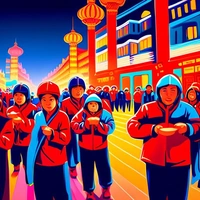
1. Chinese New Year Celebrations
Experience the vibrant atmosphere of China's most important holiday in Beijing. Streets are filled with decorations, and traditional dragon dances take place throughout the city, creating a lively and festive environment. Visit the Temple Fair to see traditional performances and enjoy local snacks.
- Timing: Takes place in late January or February, depending on the lunar calendar.
- Crowds: Popular with both locals and tourists, it can be very crowded.
- Weather: Be prepared for cold weather during this time of year.
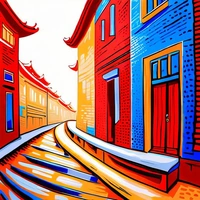
2. Hutong Tour
Wander through the narrow alleys of Beijing’s historic hutongs to get a glimpse of traditional residential life. These alleys are filled with small local shops and old courtyard homes that showcase the city's architectural past. Taking a rickshaw ride offers a more convenient way to explore these areas.
- Guided Tour: Consider hiring a local guide for history and cultural insights.
- Area: Some hutongs are more preserved and picturesque than others.
- Respect: Be mindful that these are residential areas.
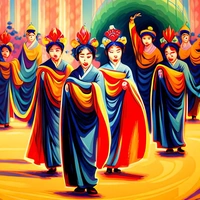
3. Peking Opera Performance
Attend a Peking Opera to see a unique blend of singing, acting, and acrobatics with beautiful costumes and makeup. The storytelling often reflects Chinese folklore and historical events. Choose a venue like Liyuan Theatre for an authentic experience.
- Language Barrier: Performances are often in Mandarin; subtitles may be available.
- Show Length: Plan for a 2-3 hour show.
- Ticket Booking: Book in advance during peak tourist seasons.

4. Tea Ceremony
Participate in a traditional Chinese tea ceremony, where you'll learn about different types of tea and Chinese drinking etiquette. The experience offers a meditative way to enjoy tea while appreciating cultural traditions. Try this at authentic tea houses around the city.
- Instruction: Look for venues that offer English explanations or guides.
- Varieties: Different teas have distinct flavors and health benefits.
- Purchases: Opportunity to buy quality tea to take home.
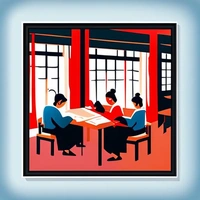
5. Calligraphy Classes
A hands-on experience, learn the art of Chinese calligraphy, which is a reflection of Chinese culture and philosophy. These classes can be found at cultural centers or private studios. It's a great way to appreciate Chinese language and artistry.
- Language: Basic understanding of Chinese characters is helpful but not necessary.
- Supplies: Materials are typically provided by class organizers.
- Duration: Lessons can range from one session to several weeks.
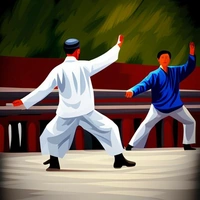
6. Tai Chi at Temple of Heaven
Join locals in their morning tai chi exercises in the park of Temple of Heaven, an ancient Chinese practice that incorporates martial arts and meditation. The harmonious movements are said to improve health and longevity.
- Timing: Early morning provides the most authentic experience.
- Participation: Comfortable clothing recommended for ease of movement.
- Consent: Photography may be sensitive; ask locals if it's permissible.
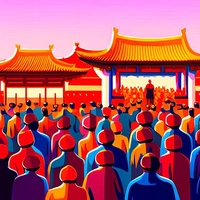
7. Temple Fairs
During traditional festivals, especially the Spring Festival, visit these fairs where you can see Chinese handicrafts, folk performances, and traditional snacks. The fairs are a great way to immerse yourself in festive activities in a cultural setting.
- Seasonality: Most events coincide with major Chinese holidays.
- Varieties: Fairs can range from religious-themed to entertainment-focused.
- Crowds: Expect large crowds especially at popular fair locations.
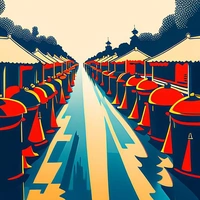
8. Local Food Market Tour
Explore traditional markets such as Sanyuanli Market, where you can find a variety of local produce and ingredients that define Beijing cuisine. Tasting fresh dumplings, fermented tofu, and regional delicacies is a must.
- Hygiene: Look for clean stalls for the safest culinary experience.
- Currency: Small denominations of cash are frequently used for transactions.
- Bargaining: It is customary to negotiate prices at markets.
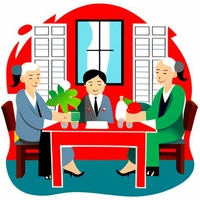
9. Traditional Chinese Medicine (TCM) Consultation
Visit a clinic to learn about TCM practices like acupuncture, herbal medicine, and cupping therapy. These methods reflect ancient Chinese health principles and are still widely used today.
- Certification: Seek licensed practitioners for trustworthy treatment.
- Understanding: Some practices may be unfamiliar to Western visitors.
- Booking: Appointments often required for consultations.
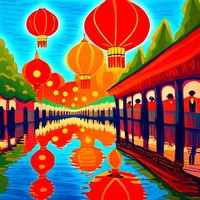
10. Lantern Festival
Celebrate the end of the Chinese New Year with the lantern festival, featuring an array of intricately designed lanterns that light up the night sky. The festival is traditionally associated with the eating of tangyuan, sweet glutinous rice balls.
- Timing: This event marks the 15th day of the lunar New Year.
- Venues: Bigger events held at locations such as parks or cultural centers.
- Family-Friendly: Activities cater to all ages.
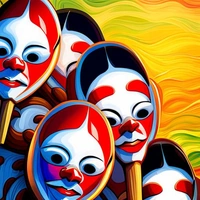
11. Beijing Opera Masks
Discover the art of painting Beijing opera masks, each color and pattern signifying different character traits and moods. Workshops allow participants to create their own masks with guidance from local artists.
- Creativity: Artistic skills not necessary; the emphasis is on personal expression.
- Souvenir: Finished masks make for personalized keepsakes.
- History: Learn about the role of masks in opera character depiction.
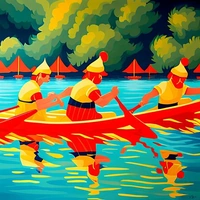
12. Dragon Boat Racing
Witness this exciting water sport that celebrates the summer Dragon Boat Festival. Teams paddle to the beat of a drum in ornately carved and brightly painted boats, creating an energetic atmosphere.
- Timing: Races occur during the Dragon Boat Festival in June.
- Related Customs: Eating zongzi, a sticky rice dish, is part of the tradition.
- Spectating: Best views are from dedicated viewing platforms.
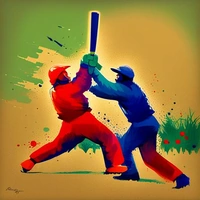
13. Cricket Fighting
Attend a traditional cricket fighting event to watch this ancient Chinese pastime. Crickets are admired for their fighting abilities and the events are held in both informal settings and organized competitions.
- Timing: Best observed during autumn when cricket fighting is most popular.
- Etiquette: Spectators often bet on matches just for fun.
- Size: Events range from small local gatherings to more formal settings.
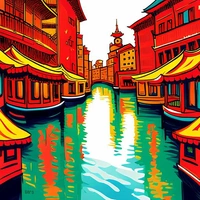
14. Feng Shui Consultations
Engage with an expert in feng shui, the Chinese practice of arranging your environment harmoniously. This ancient philosophy seeks to balance energy, or "qi," to bring peace and prosperity.
- Language: Check if services are offered in English if needed.
- Costs: Prices can vary based on consultant experience.
- Results: Belief in effectiveness varies by personal perspective.
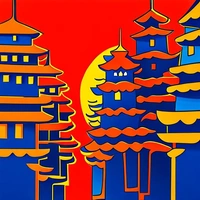
15. Paper-Cutting Art
Learn Jianzhi, the delicate art of paper cutting that decorates Chinese homes and festivals. This craft involves making intricate designs by cutting paper with scissors or knives.
- Skill: Workshops can be found at cultural centers, suitable for all skill levels.
- Materials: Colored paper is typically included in the activity.
- Symbolism: Each design often carries cultural symbolism or meaning.
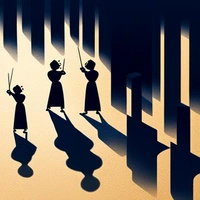
16. Chinese Shadow Puppetry
Attend a shadow puppet performance, where skilled puppeteers use leather puppets to tell stories against a lit backdrop. It’s a captivating way to experience traditional storytelling.
- Historical Insight: Puppetry has been practiced in China for over a thousand years.
- Performance Schedule: Check venues for show times, as performances are not daily.
- Photography: Flash photography may not be allowed.
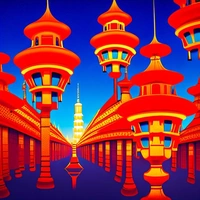
17. Red Envelope Customs
Understand the tradition of giving red envelopes, or hongbao, which contain money, during special occasions. They symbolize luck and prosperity and are an important part of many festivals and life events in Beijing.
- Occasions: Commonly given during Chinese New Year and weddings.
- Amounts: The amount often ends in an even digit for good luck.
- Etiquette: It is polite to accept with both hands and not open it in front of the giver.
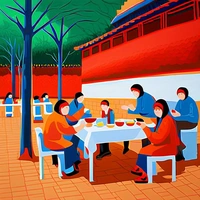
18. Courtyard Lunch Experience
Visit a traditional courtyard home for a lunch of authentic Beijing dishes such as Peking duck and handmade noodles. It provides insight into Beijing's culinary history in an intimate setting.
- Booking: Reservations may be required, especially for large parties.
- Home-Style Cooking: Meals are typically prepared with family recipes.
- Interaction: Opportunity to dine with local hosts for a more personal experience.
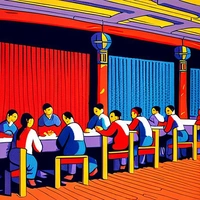
19. Chinese Knotting Workshop
Create beautiful knots that are used as decorations and for their auspicious meanings in Chinese culture. Each knot has its own significance, reflecting virtues like happiness or luck.
- Workshops: Many cultural centers offer sessions in English.
- DIY Souvenir: Finished knots make meaningful keepsakes.
- Instructions: Materials and instructions provided.
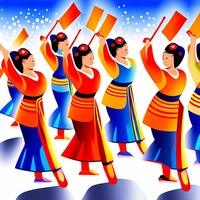
20. Local Festival Dances
Participate in or watch traditional dances during local festivals in Beijing, such as the Dragon Dance or Lion Dance. These dances are energetic and performed to bring good fortune.
- Participation: Some events welcome audience participation.
- Crowd: Be prepared for loud music and vibrant crowds.
- Timing: Different dances are associated with various festivals throughout the year.
